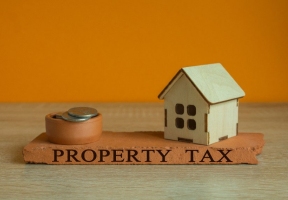
A dramatic decline in the value of commercial property in Chicago’s Loop, the city’s longtime economic engine, fueled a record property tax increase on homes across the city, according to an analysis released by Cook County Treasurer Maria Pappas. The amount of taxes imposed on Loop commercial properties — office buildings, retail stores, hotels and restaurants — for tax year 2024, decreased by more than $129 million because of a significant drop in their values. Property taxes are a zero-sum game. So, when one group of property owners pays a smaller share of an ever-increasing overall tax bill, others whose property values remain level or rise pay more. For tax year 2024, Chicago homeowners will pay $469.4 million more than they did the year before, because of the tax shift from commercial to other properties and Chicago Public Schools and other local governments asking for half-a-billion dollars more than they did a year earlier. The median residential tax bill in the city rose 16.7%, to $4,457 — the largest percentage city increases in at least 30 years. It also marks the third year in a row when a reassessed area of Cook County saw record median tax bill increases for homeowners, largely due to commercial values falling while residential values rose. Median residential bills in nine community areas went up by more than 50%, with three topping 80%:
• In West Garfield Park, the median homeowner tax bill increased by nearly $2,000, or 133%.
• In North Lawndale, it increased by nearly $1,900, or 99%.
• In Englewood, the increase came to $609, or 82.5%.
That sticker shock, and how it came about, is documented by Pappas’ research team in its Tax Year 2024 Bill Analysis, an examination of nearly 1.8 million bills that were mailed to property owners Nov. 14 and are due Dec. 15. Property owners who don’t want to wait for their bills to arrive in the mail can pay their taxes online now at cookcountytreasurer.com. Partial payments are accepted.








